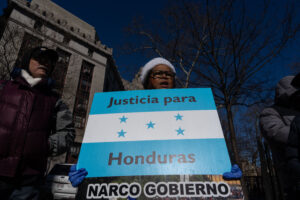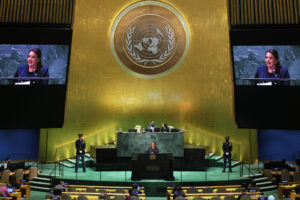On January 27, Porfirio (Pepe) Lobo Sosa will be inaugurated as President of Honduras. The June 28, 2009 coup d'état and subsequent protests for and against the coup, coupled with a deterioration in respect for human rights and freedom of expression, have sharply divided Honduran society. Reconciling Hondurans and rebuilding trust in democratic institutions will be key priorities for the Lobo Administration and the Honduran National Congress.
The international community, which so resoundingly rejected the disruption of democratic order in Honduras, will be looking for tangible signs that the new government is taking steps to address these priorities as well as the economic and governance challenges facing the country. The US Congress will also begin deliberating on when and under what conditions the suspended aid should be restored.
The following are the minimum conditions that must be taken before aid is resumed:
1. The immediate cessation of human rights violations and persecution of opposition leaders and media outlets critical of the de facto regime of Roberto Micheletti, and prompt advances in effective investigation and prosecution of the abuses that allegedly have taken place. In addition, an investigation into the escalation of violence against members of the LGBT community that occurred since June 28th should be launched, and measures implemented to address it. The Obama Administration has publically recognized the deterioration of human rights since the coup and must require that respect for the rule of law be restored.
2. The demilitarization of Honduran society and the return of the Armed Forces and police to their posts are essential for human rights to be respected. They have been implicated with carrying out the majority of human rights violations in the last seven months including arbitrary detentions, closures of media outlets and excessive use of force against protestors and detainees – an alarming return to its negative roles of past decades. The demilitarization of society will decrease tensions and distinguish the new government from the de facto one.
3. The establishment of a Truth Commission to uncover the facts of events leading up to the June 28th coup d'état. Different sectors of Honduran society and the international community should identify and nominate candidates that can restore the trust and confidence of Hondurans.
4. The development and implementation of a national dialogue process in the communities and departments outside the major cities in order to design sustainable strategies geared towards reducing poverty and inequality, strengthening government institutions, and increasing the efficient and transparent use of national and international funds. Last week, President-elect Lobo presented in Tegucigalpa his administration's country plan for the next 28 years and a held a few "national dialogues" to discuss the future. While promising, he should see this as the beginning of a process and not the conclusion. At his inauguration he should state his clear intention to start a process of national dialogue throughout the country.
As the United States government considers normalizing relations with Honduras, including restoring aid, it is essential to first ensure the new government establishes respect for civil liberties and human rights, makes advances in establishing accountability for abuses and launches meaningful national dialogue. These are fundamental steps to begin rebuilding democracy in Honduras.
Contact:
Vicki Gass, Senior Associate, WOLA, vgass@wola.org, 202-797-2171


